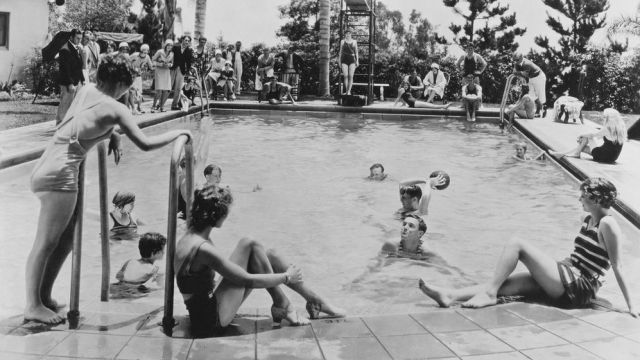Have Celebrities Hijacked American Diplomacy?
Congressional lawmakers are understandably miffed about the latest Cuban holiday of international superstars Beyonce and Jay-Z, who spent the weekend in Havana celebrating their fifth wedding anniversary accompanied by paparazzi, bodyguards and fans. While the rest of America at least tacitly observes the trade and cultural embargo against Cuba, members of the celebrity elite apparently feel no such need. And it’s not just the Cuban holiday of Beyonce and Jay-Z –- last month, Dennis Rodman was hanging out at the basketball court with nuclear-mad North Korean dictator Kim Jong Eun before jetting off to Rome to catch the latest Vatican proceedings for his reality show. At a time when we know that our political process is deeply tainted by deep-pocketed donors, is it possible that our diplomatic process is being tainted in a similar way?
In a recent TED Talk (“We the People, and the Republic We Must Reclaim”), Lawrence Lessig laid out all the ways that the U.S. political system has been corrupted by the political contributions of the financial elite. It’s a warped system that Lessig refers to as “Lesterland” — a bizarro world where only the top 0.05% (the “Lesters”) of the population get to have a say in who the winning political candidates will be. In the last election cycle, Lessig points out, a grand total of 132 Americans were responsible for 60% of all the Super PAC money sloshing around out there. That’s a tiny group of Americans who’s determining the future of our nation.
Unfortunately, that same bizarro system that has resulted in “Lesterland” seems to be corrupting our foreign policy as well. Money now matters more than ever before. Wasn’t there a time when we prepared our budding foreign statesmen for service by sending them to a place like Harvard’s Kennedy School of Government or Princeton’s Woodrow Wilson School? Being a statesman was perceived to be a higher calling, something you did for your country. Now, what happens? We send our Celebrity A-listers (and B-listers and C-listers) off to diplomatic hot spots. You suddenly have Dennis Rodman playing a role in how North Korea’s nuclear program plays out in Asia.
And that’s not all. Think of the way we dole out ambassadorships these days. They’re basically a perk for favors rendered and money tendered, more so than at any time in recent memory. As a result, you have the recent high-profile appointment of Caroline Kennedy as the Ambassador to Japan. Before that, you had the rumors of Anna Wintour being appointed as the next Ambassador to Great Britain. If you’ve raised a lot of money in a presidential campaign, you can assume that you’re suddenly in the running for an ambassador job somewhere in the world.
Not there’s anything wrong with this, as long as celebrities at least make the pretense of supporting the official American position on any diplomatic issue. Over the past 30 years, there has been a long-term evolution toward “celebrity diplomacy,” in which rock stars and actors take on the functionality and trappings of representatives from the U.S. State Department. It’s one thing for them to cavort around Africa, adopting children and pressing for solutions to long-standing health and human rights problems. It’s another thing entirely for them to muck up the diplomatic works by explicitly contravening against expressed U.S. interests – whether it’s Dennis Rodman in North Korea or Beyonce and Jay-Z in Cuba.
Have celebrities really hijacked the diplomatic process? Certainly, there’s no doubt that money matters more than ever. When Hollywood actors, singers and athletes are also moguls with their own brands to promote, it’s a question of whether the cultural 1% are traveling abroad for our nation’s benefit – or for the benefit of their own pocketbooks. It’s OK for Beyonce and Jay-Z to hang out at the White House after the inauguration, but it’s not OK for Beyonce and Jay-Z to make the quick trip to Havana to showcase Cuban tourism and bolster the Castros. At a time when politically-powerful fundraisers now have a better chance of becoming a foreign ambassador than do our nation’s best and brightest, can there really be any doubt that the 1% has changed forever the way America interacts with the rest of the world?
image: Beyonce and Jay-Z / Wikimedia Commons





